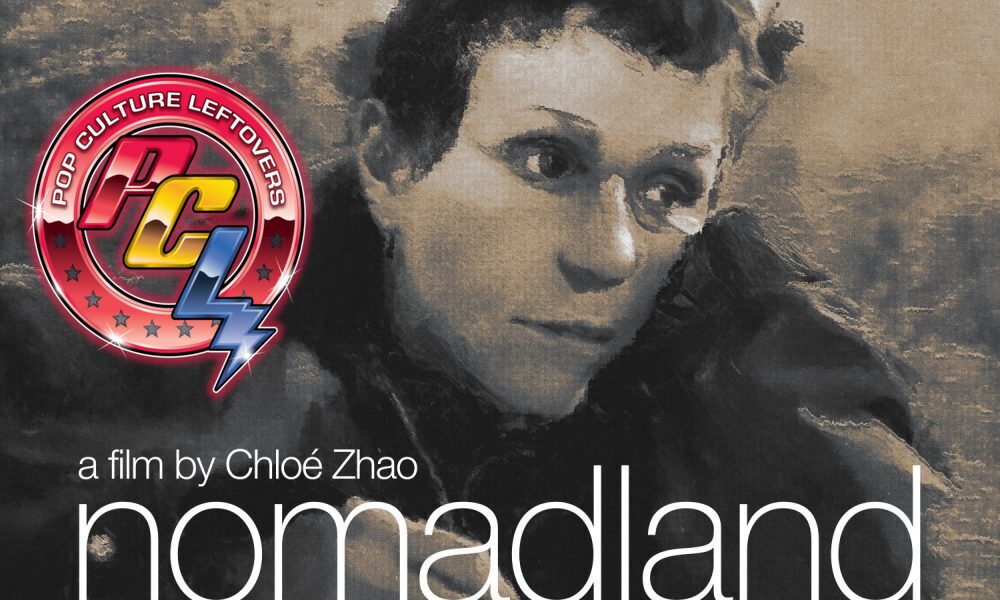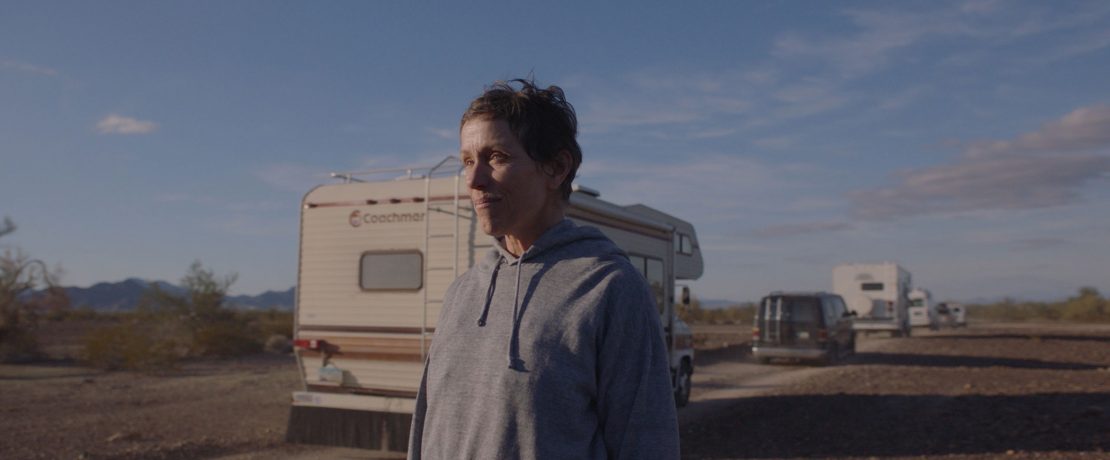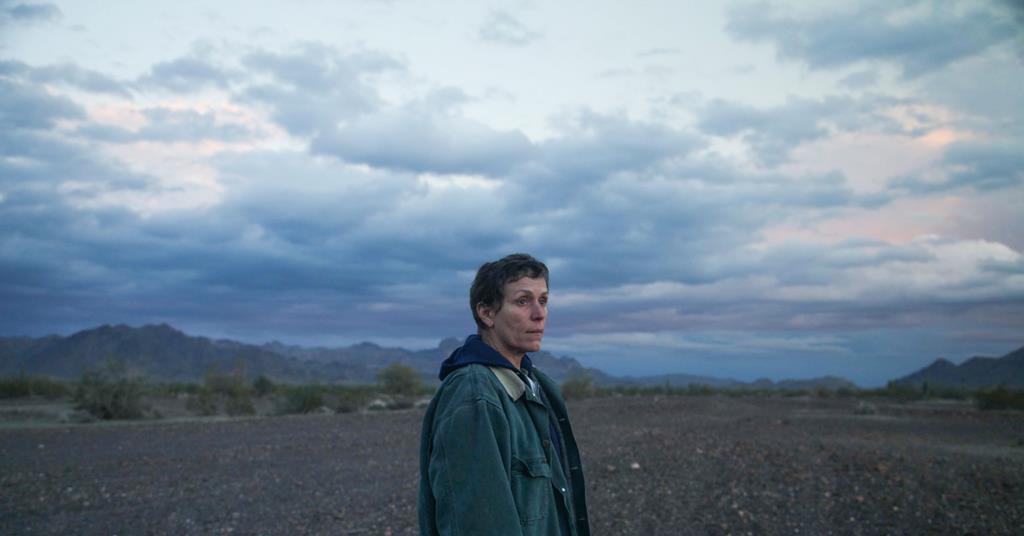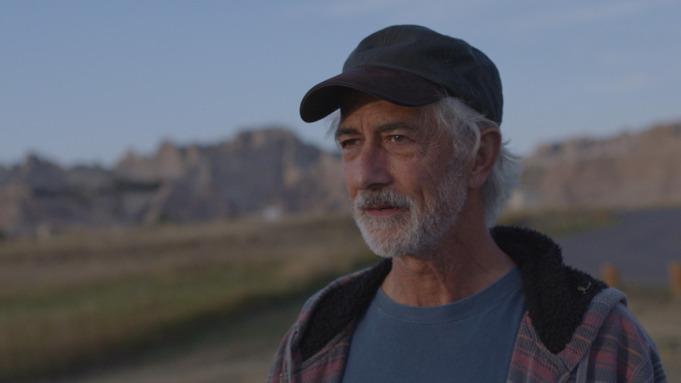
“Nomadland” Movie Review by Josh Davis
March 3, 2021 11:01 am |

“Nomadland” is a gorgeous, wandering, strange and beautiful movie by writer/director Chloé Zhao (“The Rider,” the upcoming “Eternals”).
It stars Frances McDormand (“Three Billboards Outside Ebbing, Missouri,” “Fargo”) as Fern, an older woman who adopts a transient lifestyle after a series of hardships altered the course of her life.
Years ago, her husband died, and the plant she worked at for many years closed and devastated the small town where they lived.
As the film opens, Fern is a seasonal worker at Amazon, and we get a rare glimpse of what it might be like to work for one of the biggest companies in the world.
It’s not a scandalous exposé, but maybe that’s because of Fern’s disposition, which is, if nothing else, steady and quietly optimistic.
Fern lives in a van she dubs “Vanguard,” which she spends a lot of care converting into a living space.
After Amazon, she later works in a diner, a campground, a beat farm, or wherever she can find a steady job.
The film is based on the 2017 nonfiction book “Nomadland: Surviving America in the Twenty-First Century” by Jessica Bruder.

McDormand and producer Peter Spears optioned the book in 2017 and recruited Zhao, and filming took place over a four-month period in 2018. Reportedly, Zhao, McDormand and the crew shot the movie while living in vans, and the script was largely improvised by real-life nomads playing versions of themselves.
McDormand, who continues to establish herself as one of the great modern actors, gives a gripping, authentic, world-weary performance.
Fern is a woman who is always looking out the window. Her sister, Dolly (Melissa Smith), tells Fern that people always thought she was an eccentric, but that’s just because she was braver and more honest than others.
Later in the film, Fern briefly stays in a large house with a man named Dave (character actor David Strathairn) that she met in a van park. It’s a loving, large home with a farm and a big family who are warm and welcoming. Dave was also a nomad, but his estranged son tracked him down and invited him to stay with the family.
While that situation works for Dave, it doesn’t suit Fern. Despite the trappings of normalcy — a large bed, hot meals and indoor plumbing — it’s not long before Fern starts sleeping in her van again. And eventually, of course, she leaves. Fern always has her eyes on the road. The nomad lifestyle has consumed her, for better and for worse.
It’s great to see that a movie like this, made with so much care and detail, can still exist.
Along with stellar performances from McDormand and Strathairn, many of the real-life nomads give award-worthy performances.
Swankie (simply credited as Swankie) is dying of cancer and only has seven months to live. She tells Fern that she will spend her final moments on the road, in what’s one of the best cinematic speeches about mortality in recent memory.
Later in the film, Bob (Bob Wells), pausing to fight back tears, talks about his son’s suicide in another impactful scene.
Wells recently told Vulture, “… the story I told about my son was true. I mean, those were my experiences. And so, it was easy to find [the words], because they’re me.”
That’s the beauty of Zhao’s approach to making this movie: it feels real because significant parts of it are. The actors have lived this stuff, and Zhao and the crew lived it during filming.

There’s a gorgeous authenticity to “Nomadland,” like a narrative documentary about growing old in America, or about the outcasts that age and capitalism make when people lose their jobs and those closest to them, and they have nowhere else to turn to but an outsider lifestyle.
Maybe the best trick in “Nomadland” is that the film is sorrowful, contemplative and poetic, but it never showcases the crushing despair that likely transformed many of the people who inspired it, into actual nomads. We, the audience, can sense it and guess about what those moments felt like, but they’re not shoved down our throats. There’s zero exploitation.
Zhao and the filmmakers lovingly portray the subjects and the subject matter, and the sparse story is just enough to hold it all together.
Like the nomad lifestyle, the movie gets by on only what it needs, no more, no less. How refreshing is that?\
PCL Rating: Tupperware
Rotten Tomatoes Rating: FRESH
Tags: Chloé Zhao, film review, frances mcdormand, movie review, nomadland film 2020, Nomadland movie, pop culture leftovers
Categorised in: Movie Reviews
This post was written by Leftover Brian
Comments are closed here.




